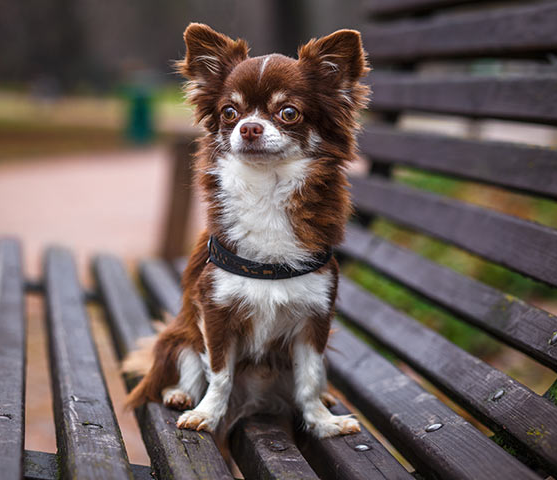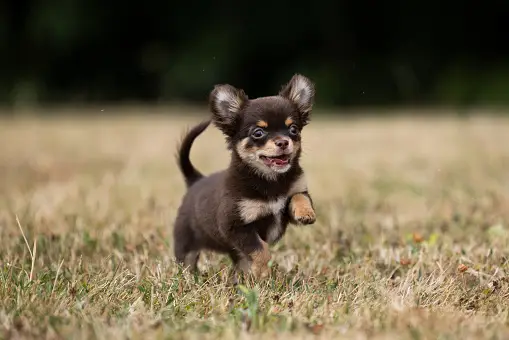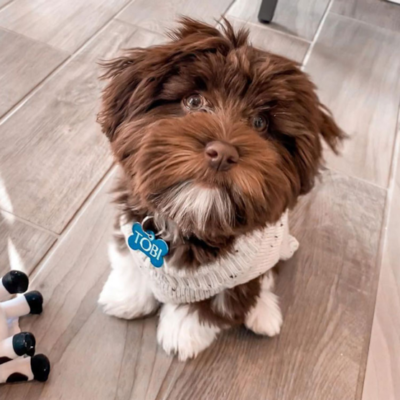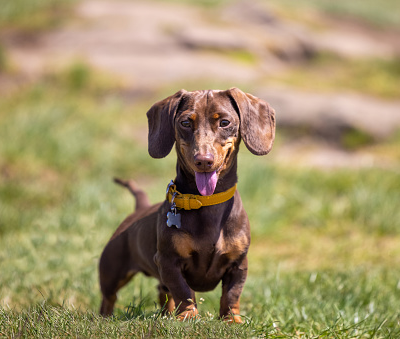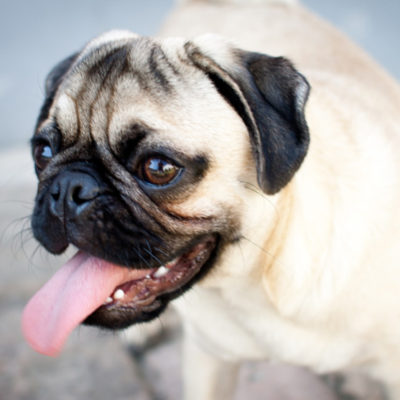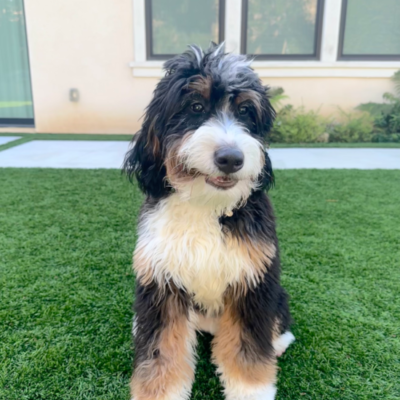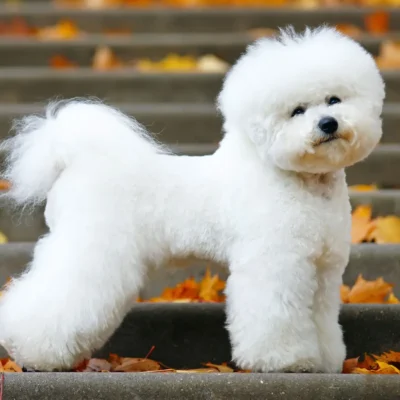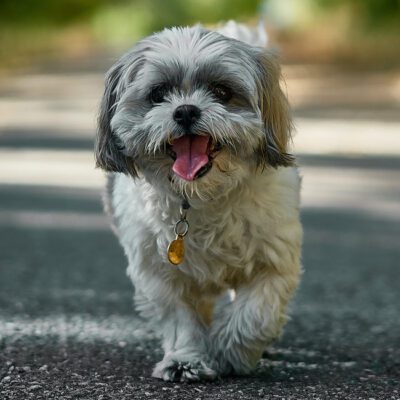
Elegant, charming, and somehow even smaller than your average house cat, the Chihuahua is a breed that knows exactly how to turn heads. Don’t be fooled by their tiny size — these pint-sized pups are packed with a larger-than-life personality that’s impossible to miss. Bold, spirited, and endlessly captivating, Chihuahuas truly leave a lasting impression.
Hailing from Mexico, the Chihuahua proudly holds the title of the world’s smallest dog breed. But what they lack in size, they more than make up for with boundless energy, fierce courage, and a personality that could fill a whole room. Having a Chihuahua around is a little like living with a miniature lion — tiny in stature but mighty in spirit.
| Attribute | Details |
|---|---|
| Same As | |
| Breed Type / Mix | Purebred |
| Life Span | 12–20 yrs |
| Training | Responsive |
| Shedding | Minimum |
| Energy | High Energy |
| Temperament | Affectionate, Alert, Courageous, Devoted, Intelligent, Lively, Loyal, Trainable |
| Adult Weight | 2–6 lbs |
| Adult Height | 6–9 in |
- Compact Size: One of the smallest dog breeds, Chihuahuas weigh 2-6 pounds and stand 5-8 inches tall, ideal for apartment living and constant companionship.
- Distinctive Appearance: Known for their apple-shaped heads, large round eyes, erect ears, and various coat colors and textures (smooth or long-haired).
- Lively Personality: Despite their small size, they are bold, alert, and energetic, often trying to assert dominance over larger dogs.
- Strong Attachment: Loyal and affectionate, Chihuahuas often form strong bonds with one person, making them protective and sometimes possessive.
- Long Lifespan: Known to live 14-16 years, with some reaching their twenties, offering a long-term companionship.
- Vocal Tendencies: Chihuahuas are known for their vocal nature, often barking, yipping, or growling to express themselves or alert to danger.
- Intelligent and Trainable: Quick learners with a strong mind, but their stubbornness requires patience and consistency in training.
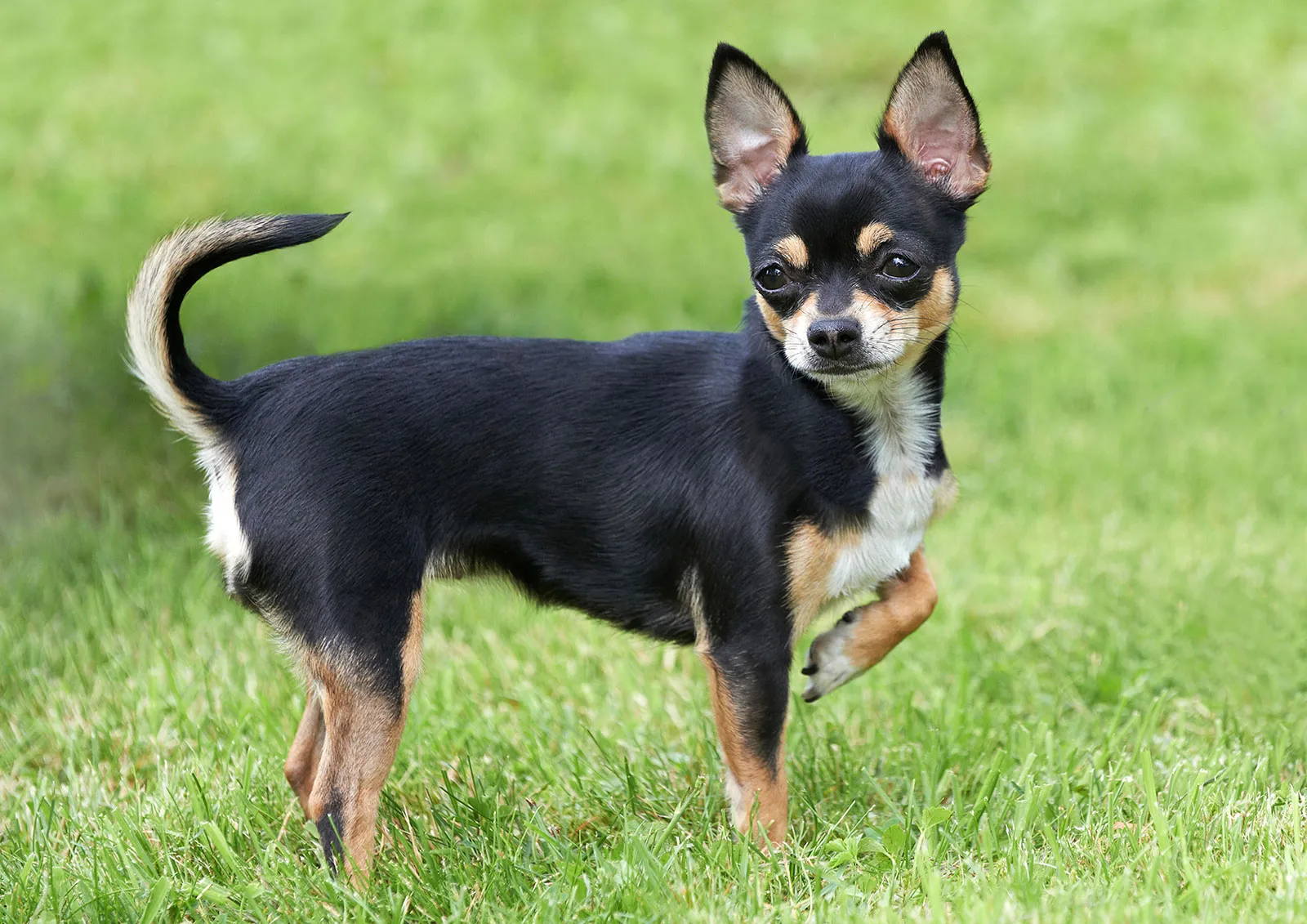
Chihuahuas are one of the most iconic and instantly recognizable dog breeds in the world. Known for their petite stature and distinct features, these tiny dogs typically weigh under six pounds, classifying them as a toy breed. Despite their delicate appearance, Chihuahuas have a bold, confident demeanor that makes them stand out in any crowd.
Coat Types and Colors
Chihuahuas come in two distinct coat types: smooth and long. The smooth-coated Chihuahua has a glossy, soft coat that fits closely to their body, requiring minimal grooming. On the other hand, the long-coated Chihuahua features a fluffy, slightly wavy coat with a soft undercoat, which may need more frequent brushing to prevent tangles.
In terms of color, Chihuahuas offer a stunning variety. They can be fawn, chocolate, black, white, tricolor, and many other combinations, making it easy to find a Chihuahua that fits your aesthetic preferences.
Distinctive Features
One of the breed’s most notable characteristics is its apple-shaped head with a short, pointed muzzle. However, some Chihuahuas may have a deer head shape, which features a longer muzzle and less rounded skull. Both head types are equally endearing, and the choice between them is often down to personal taste.
Chihuahuas also have large, expressive eyes that are typically dark, though some may sport ruby or even luminous eyes. Their eyes exude curiosity and intelligence, making it impossible for them to go unnoticed. Their ears are large, erect, and highly sensitive, constantly alert to their environment, whether it’s a potential treat or an unexpected visitor.
Their neck is slightly arched, leading to a level back and a well-rounded rib cage. Chihuahuas also have a tail that is carried high, often curling over their back in a graceful loop or curve.
Personality and Movement
Though their delicate appearance may suggest fragility, Chihuahuas are surprisingly sturdy and resilient. Their small size is balanced by a strong, muscular build and graceful, swift movements. With fine bone structure and confident stature, they may appear dainty, but Chihuahuas are anything but fragile. Beneath their cute exterior lies a spirited dog eager to explore, play, and take on the world with a bold sense of independence.
Whether you have a smooth or long-haired Chihuahua, their energetic and curious nature ensures they’ll remain a delightful companion, always ready to capture hearts with their charm.
Chihuahuas, though small in size, pack an incredible amount of personality into their tiny frames. Their fiery and vivacious temperament is one of their most defining traits, often making them seem larger than life. Known for their confidence and tenacity, Chihuahuas are not intimidated by their size, and they carry themselves with a bold, fearless attitude.
Loyalty and Attachment
Chihuahuas are famously loyal to their human companions, forming deep bonds with their owners. These dogs tend to develop a strong attachment to one particular person, often becoming their shadow and offering unwavering affection. This intense loyalty can sometimes translate into protectiveness, and Chihuahuas may display jealousy if they feel their bond with their humans is being threatened. Because of this, they may become clannish, only trusting those within their close circle, and can sometimes show wariness or even hostility towards strangers or other pets.
Alert and Watchful
Despite their small stature, Chihuahuas make excellent watchdogs. Their alertness and tendency to bark at any unusual sound or sight make them effective in this role. Whether it’s a delivery person or a squirrel outside the window, Chihuahuas are quick to signal anything out of the ordinary. Their big-dog attitude allows them to believe they’re guarding a large estate, even if they’re only patrolling a small apartment.
Curiosity and Playfulness
Chihuahuas are naturally curious and always up for an adventure. Their playful and energetic nature means they’re ready to explore their environment, engage in interactive play, or follow their owners around for attention. Whether it’s chasing after a ball or joining in on family activities, their lively antics provide endless entertainment for their families.
Training and Socialization
While their spirited personalities make them fun and engaging, Chihuahuas can also be a bit of a challenge. Their bold and sometimes bossy nature requires consistent training and early socialization. Without proper guidance, a Chihuahua’s tendency to assert dominance can escalate into unwanted behaviors such as aggression or territorialism. However, with the right approach to training—using positive reinforcement and patience—these little dogs can learn to coexist harmoniously with other pets and people, turning their enthusiasm into a source of joy.
Small Dog Syndrome
Chihuahuas often suffer from small dog syndrome, a phenomenon where the dog believes it’s larger and more powerful than its actual size. This can lead to excessive barking, nipping, or even aggressive behavior if not properly managed. Socialization and training are key to helping a Chihuahua overcome this mindset, allowing them to become well-rounded, well-behaved companions.
Temperament Variations
As with any breed, individual temperaments vary from dog to dog. While Chihuahuas generally tend to be lively, loyal, and full of personality, each one has its own unique quirks and preferences. By understanding and embracing their distinctive characteristics, Chihuahua owners can enjoy a strong, fulfilling relationship with their pet.
In summary, Chihuahuas are not just small in size but also full of spunk, loyalty, and adventure. Their vibrant personalities make them delightful companions, provided they receive the proper care, training, and attention.
Grooming your Chihuahua is relatively simple, thanks to their small size and manageable coat. However, the grooming routine can vary depending on whether your Chihuahua has a smooth coat or a long coat.
- Smooth-Coat Chihuahuas: These Chihuahuas have a sleek, shiny coat that sheds moderately. Weekly brushing with a soft bristle brush or grooming mitt is usually enough to maintain their coat’s health and shine. Regular brushing also helps distribute natural skin oils and controls shedding.
- Long-Coat Chihuahuas: With their longer, fluffier coats, long-coat Chihuahuas require a bit more maintenance. Brush them a few times a week with a pin brush to prevent tangling and matting. Proper brushing helps maintain their soft, fluffy coat.
- Bathing: Bathing is typically needed only once a month, unless your Chihuahua has gotten especially dirty. Use a gentle dog shampoo to avoid irritating their skin, and be cautious not to get water in their ears or eyes.
- Dental Care: Chihuahuas are prone to dental issues, so regular tooth brushing is crucial. Use a dog-friendly toothpaste and a soft brush. Aim to brush their teeth at least a few times a week, but daily brushing is ideal.
- Nail Care: Chihuahuas’ nails grow quickly and need to be trimmed every 2-3 weeks. Use small dog nail clippers to avoid accidental injury, as their nails are small and delicate.
- Ear Care: Check your Chihuahua’s ears weekly for signs of infection such as redness, swelling, or odor. Gently clean the ears with a dog-safe ear cleanser, being careful not to go too deep into the ear canal.
Exercise Needs: Keeping Your Chihuahua Active and Happy
Although small in size, Chihuahuas have big-dog energy and love to explore and play. They don’t require extensive exercise but need enough physical activity to stay healthy and happy.
- Daily Walks: A short walk around the neighborhood—typically 15 to 20 minutes—is often enough to satisfy your Chihuahua’s need for exercise. They enjoy the opportunity to sniff around and explore, but long or strenuous walks are not necessary.
- Indoor Play: Chihuahuas are just as content with indoor activities. Games like fetch, tug-of-war, or even using interactive toys can keep them entertained and mentally stimulated.
- Jumping and Climbing: Chihuahuas enjoy jumping and climbing, but due to their small size, their bodies are more prone to injury. Be cautious with activities that involve excessive jumping or falling.
- Weight Management: Even though they don’t need extensive exercise, Chihuahuas are prone to obesity. Ensure they get regular physical activity, and feed them a balanced diet to prevent weight-related health issues.
- Cold Weather Sensitivity: Chihuahuas have a small frame and thin coat, making them sensitive to cold weather. During the winter months, consider dressing them in a sweater for outdoor walks or keeping them active indoors.
Health: Common Issues and Care for Your Chihuahua
Chihuahuas are generally healthy dogs with an impressive lifespan, but like all breeds, they are prone to certain health conditions. Here are some common health concerns for Chihuahuas:
- Dental Issues: Chihuahuas’ small mouths can lead to overcrowded teeth, which may cause tartar buildup and gum disease. Regular dental care, including brushing their teeth and professional cleanings, is important to avoid these problems.
- Injuries: Due to their small size, Chihuahuas are more vulnerable to injury, especially from rough play or jumping from high places. Be mindful of their surroundings to keep them safe from falls and accidents.
- Obesity: Chihuahuas love food, and without portion control and exercise, they can easily become overweight. Obesity can lead to serious health problems such as heart disease, diabetes, and joint issues.
Lifespan
Chihuahuas are one of the longer-lived dog breeds, with an average lifespan of 14 to 17 years. Some can live even longer with proper care. Their longevity is attributed to their small size and generally robust health. To ensure your Chihuahua lives a long, healthy life, consider the following:
- Balanced Diet: Feed your Chihuahua a nutrient-rich diet in appropriate portions to prevent obesity, which can reduce their lifespan and lead to other health issues.
- Regular Vet Visits: Routine check-ups with a veterinarian are crucial for identifying health problems early and ensuring your Chihuahua stays healthy.
- Mental and Physical Stimulation: Regular exercise, both physical and mental, helps maintain your Chihuahua’s health. Engaging them in fun activities can prevent boredom and keep them fit.
- Stress-Free Environment: Chihuahuas thrive in a loving, stress-free environment. They form strong bonds with their owners and need regular attention and companionship to feel secure.
Training: How to Get Your Chihuahua to Learn and Obey
Training your Chihuahua can be an enjoyable experience, though it can be challenging due to their independent nature. However, with patience and consistency, they can become well-behaved companions.
- Positive Reinforcement: Chihuahuas respond best to positive reinforcement techniques, such as rewarding good behavior with treats, praise, or playtime. Avoid harsh discipline, as this can lead to fear and resistance.
- Consistency: Being consistent with commands and rules is vital in training a Chihuahua. If certain behaviors are acceptable one day but not the next, they may become confused. Make sure everyone in the household uses the same commands and expectations.
- Barking: Chihuahuas are known for their tendency to bark, but this can be managed by teaching them the “quiet” command. Understanding why they bark—whether due to excitement or alertness—will help in addressing this behavior.
- Socialization: Chihuahuas tend to bond closely with one person and can become possessive or overprotective. Early socialization with other people and pets can help them become more comfortable in different environments.
- Exercise and Mental Stimulation: Chihuahuas are intelligent and need regular physical and mental stimulation. Activities like short walks, playtime, and brain games will keep them mentally sharp and prevent boredom-driven behavior issues.
- Patience: While Chihuahuas are intelligent, their independent streak can slow down training. Patience and positive reinforcement will lead to a well-behaved, happy Chihuahua.
In conclusion, Chihuahuas are delightful and loving companions that thrive with proper care, regular grooming, consistent training, and a balanced lifestyle. With the right attention to their health, exercise, and emotional well-being, your Chihuahua can live a long, happy life as a cherished member of your family.
The Chihuahua’s history is as captivating as the breed itself, steeped in rich cultural significance that spans centuries. The origins of the Chihuahua puppies can be traced back to the ancient civilizations of Mexico, specifically to the region that gave the breed its name: the state of Chihuahua.
Ancient Roots: The Techichi Connection
Historians believe that Chihuahuas are descendants of the Techichi, a small dog that was highly valued by the Toltec civilization. Archaeological evidence, such as artifacts and depictions in Toltec and later Aztec ruins, points to the Techichi’s close resemblance to modern-day Chihuahuas. These early dogs were considered sacred and were believed to have mystical properties, often serving as spiritual guides for the souls of the deceased on their journey to the underworld.
The Chihuahua as We Know It Today
Although Chihuahuas have ancient roots, the purebred breed as we know it today began to take shape only in the late 19th century. Americans first discovered these captivating little dogs in Mexico, and their striking appearance and friendly temperament quickly captured the hearts of many. By 1904, the breed was officially recognized by the American Kennel Club (AKC), marking a significant milestone in the Chihuahua’s rise to fame as one of the most popular purebred dogs.
Hollywood’s Influence on Chihuahua Popularity
The Chihuahua’s popularity soared in the 20th century, especially in the mid-1900s, as the breed was embraced by Hollywood stars and the public alike. One of the key moments in the breed’s rise to stardom came with Xavier Cugat, a famous Latin musician from the 1950s. Cugat was often seen with a Chihuahua under his arm, and this high-profile association sparked a surge in the breed’s appeal.
Since then, many celebrities, including Madonna, Reese Witherspoon, Paris Hilton, and Jennifer Lopez, have been seen with Chihuahuas, further cementing their status as a fashionable and lovable breed.
The Chihuahua’s Hollywood Fame
The Chihuahua’s place in popular culture continued to grow with its appearances in commercials and films. Perhaps most famously, the Taco Bell commercials of the 1990s featured a Chihuahua named Gidget, who famously declared, “¡Yo quiero Taco Bell!” This ad campaign turned Gidget into a household name and contributed to the breed’s widespread recognition.
More recently, the animated film “Coco” introduced a Xoloitzcuintli named Dante as a major character. While the Xolo is a distinct breed, Chihuahuas were featured throughout the movie, reinforcing the connection between the breed and Mexican culture and heritage.
Chihuahuas in Literature and Pop Culture
Chihuahuas have also made their mark in literature. One notable example is the beloved children’s book series “Skippyjon Jones”, where the titular character—a Siamese cat—believes he is a Chihuahua. This whimsical portrayal further enhanced the breed’s popularity, making it a favorite among dog lovers of all ages.
A Global Icon
Today, Chihuahuas continue to be one of the most recognized and adored dog breeds worldwide. Their enduring charm, spirited nature, and lovable personality have solidified their place as a popular choice for pet owners. Whether in Hollywood films, advertising campaigns, or in the arms of celebrities, the Chihuahua’s status as a cultural icon is undeniable.
Through centuries of history and cultural representation, the Chihuahua remains a symbol of courage, companionship, and the perfect blend of charm and character.
What is the difference between a standard Chihuahua and a ‘Teacup’ Chihuahua? The AKC breed standard for Chihuahuas specifies a weight not exceeding 6 pounds. ‘Teacup’ is an unofficial marketing term used by some breeders for Chihuahuas bred to be significantly smaller than this standard, often aiming for under 3-4 pounds, which carries extreme health risks.
Are Teacup Chihuahuas more fragile than standard Chihuahuas? Yes, significantly. Their bones are incredibly fine and brittle, making them highly susceptible to fractures from falls (even short distances), being stepped on, or improper handling. They require constant vigilance to prevent injury.
Why do Teacup Chihuahuas shiver so much? All Chihuahuas tend to shiver, partly due to their high metabolism and small body mass making it hard to regulate temperature, and partly due to excitement, stress, or fear. In extremely small ‘teacups’, this sensitivity to cold and stress can be even more pronounced.
What is a molera (open fontanel) and is it common in Teacup Chihuahuas? A molera is a soft spot on the top of the skull where the bone plates haven’t fully fused. While present in many Chihuahua puppies, it usually closes. In extremely small or poorly bred Chihuahuas, it may remain open into adulthood, leaving the brain vulnerable. It’s more common and riskier in ‘teacup’ lines.
How often do Teacup Chihuahua puppies need to eat to avoid hypoglycemia? Very frequently. Their tiny bodies have almost no reserves, making them highly prone to dangerous drops in blood sugar (hypoglycemia). Young puppies may need feeding every 1-3 hours, including overnight. Owners must know the signs (lethargy, staggering, seizures) and have karo syrup or similar on hand for emergencies.
Do Teacup Chihuahuas have the typical ‘big dog in a small body’ personality? They often retain the classic Chihuahua confidence and feistiness. However, their extreme fragility can sometimes lead to increased fearfulness, anxiety, or defensive aggression (“Small Dog Syndrome”) if not handled gently and socialized carefully.
What are the most serious health risks associated with Teacup Chihuahuas? Beyond hypoglycemia and open moleras, they face increased risks of hydrocephalus, collapsing trachea, heart problems (like patent ductus arteriosus, mitral valve disease), liver shunts, severe dental issues, and bone fractures.
Is the lifespan of a Teacup Chihuahua shorter than a standard one? Often, yes. While well-bred standard Chihuahuas can live 14-18 years or more, the numerous severe health complications associated with extreme miniaturization frequently lead to a significantly shorter lifespan for ‘teacups’.
Are Teacup Chihuahuas good pets for families with young children? Absolutely not recommended. Their extreme fragility poses a huge risk of accidental injury or death from being dropped, squeezed, or stepped on by a child. They are best suited for adult-only homes or those with very calm, older, supervised teenagers.
How much exercise does a Teacup Chihuahua need? Minimal. Very short, gentle indoor play sessions and perhaps brief outings in a secure area (like a purse or carrier) are sufficient. They cannot tolerate much physical activity, and walks can be risky due to their fragility and potential encounters.
How much does a puppy marketed as a ‘Teacup Chihuahua’ typically cost? Prices are often inflated due to the deceptive marketing, ranging from $1,500 to $5,000 or even higher. High prices do not correlate with health or quality; they often reflect the unethical nature of producing such fragile dogs.
Are Teacup Chihuahuas harder to house train? Yes, very small dogs can be challenging due to tiny bladders needing frequent emptying and the difficulty spotting small accidents. Consistency, patience, positive reinforcement, and often utilizing potty pads are necessary.
Why do ethical Chihuahua breeders advise against the ‘teacup’ label? Reputable breeders (like those affiliated with the Chihuahua Club of America) prioritize health and adhere to the breed standard. They know that deliberately breeding for unhealthy, extreme smallness below the standard leads to suffering and serious health problems, violating ethical breeding principles.
Do Teacup Chihuahuas have more dental problems? Yes, fitting a normal set of teeth into an abnormally tiny jaw causes severe overcrowding, retained baby teeth, malocclusion (bad bite), and significantly increases the risk of early and severe periodontal disease. Strict dental hygiene is critical.
Do Teacup Chihuahuas come in both long and smooth coats? Yes, like standard Chihuahuas, those marketed as ‘teacups’ can have either coat type. Grooming needs depend on the coat (regular brushing for long coats, occasional brushing for smooth coats), but handling must always be exceptionally gentle.
How should I handle a Teacup Chihuahua safely? Always use two hands, supporting the chest and rear. Never pick them up quickly or by the legs/scruff. Be extremely mindful of where they are to avoid stepping or sitting on them. Prevent falls from furniture or arms at all costs.
Is socializing a Teacup Chihuahua difficult? It requires extreme caution. Positive exposure to new sights and sounds is important, but interactions with other animals (even small ones) or unfamiliar people must be closely supervised and controlled to prevent injury or overwhelming fear.
Do Teacup Chihuahuas bark a lot? Chihuahuas are known for being alert barkers. This trait is usually present regardless of size. Early training can help manage excessive barking, but expect some level of vocalization.
What is a healthier alternative to seeking a ‘Teacup’ Chihuahua? Look for a responsible breeder who breeds Chihuahuas within the AKC standard (under 6 lbs), prioritizes health testing (patellas, heart, eyes), and produces dogs with good temperaments. Choose a puppy based on health and personality, not extreme size.
Can Teacup Chihuahuas live with other pets? It depends heavily on the other pet’s size and temperament. Calm, gentle cats or other *very* small, calm dogs might be okay with constant supervision. Larger or more boisterous pets pose a significant accidental injury risk.

